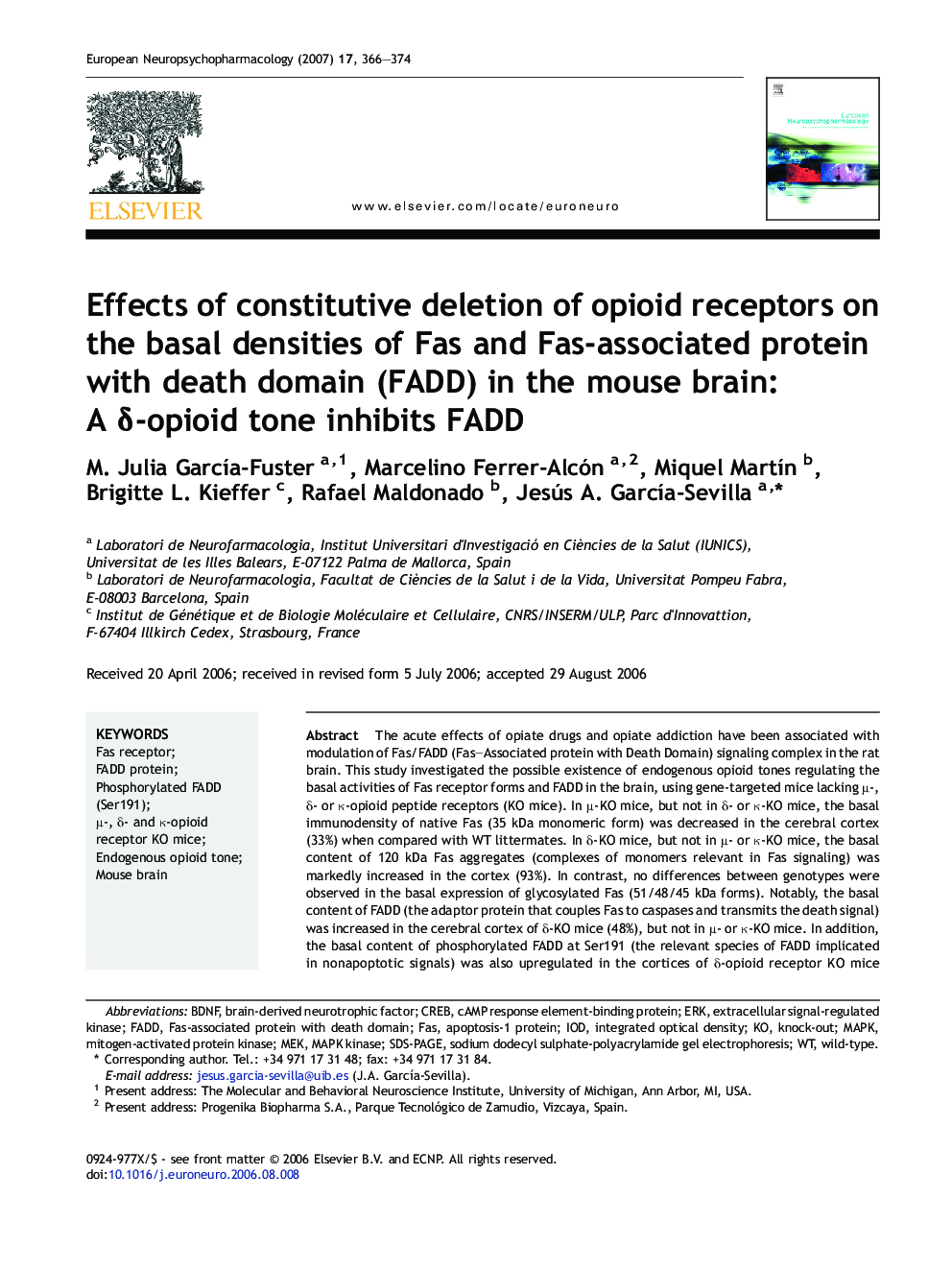| Article ID | Journal | Published Year | Pages | File Type |
|---|---|---|---|---|
| 319930 | European Neuropsychopharmacology | 2007 | 9 Pages |
The acute effects of opiate drugs and opiate addiction have been associated with modulation of Fas/FADD (Fas−Associated protein with Death Domain) signaling complex in the rat brain. This study investigated the possible existence of endogenous opioid tones regulating the basal activities of Fas receptor forms and FADD in the brain, using gene-targeted mice lacking μ-, δ- or κ-opioid peptide receptors (KO mice). In μ-KO mice, but not in δ- or κ-KO mice, the basal immunodensity of native Fas (35 kDa monomeric form) was decreased in the cerebral cortex (33%) when compared with WT littermates. In δ-KO mice, but not in μ- or κ-KO mice, the basal content of 120 kDa Fas aggregates (complexes of monomers relevant in Fas signaling) was markedly increased in the cortex (93%). In contrast, no differences between genotypes were observed in the basal expression of glycosylated Fas (51/48/45 kDa forms). Notably, the basal content of FADD (the adaptor protein that couples Fas to caspases and transmits the death signal) was increased in the cerebral cortex of δ-KO mice (48%), but not in μ- or κ-KO mice. In addition, the basal content of phosphorylated FADD at Ser191 (the relevant species of FADD implicated in nonapoptotic signals) was also upregulated in the cortices of δ-opioid receptor KO mice (6.5−11.0-fold). The results suggest that μ-receptors tonically stimulate (through endogenous opioid peptides) the activation of native Fas, whereas δ-receptors tonically inhibit the expression of Fas aggregates and that of FADD and phosphorylated FADD (Ser191) in the mouse brain. These data are in line with the acute opposite modulation of Fas and FADD induced by μ- and δ-opiate agonists, and strongly support the notion of an anti-apoptotic δ-opioid tone that restrains Fas signaling.
